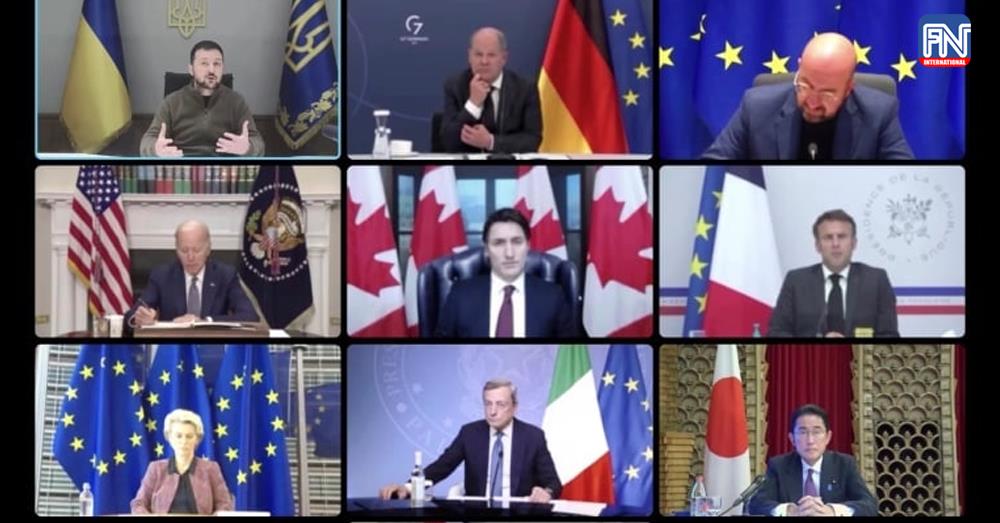KYIV, Oct 11 (AFP) - Ukrainian President Volodymyr Zelenskyy has appealed to leaders of the Group of Seven (G7) countries for more air defence capabilities as the world’s wealthiest democracies pledged to support Kyiv for “as long as it takes”.
Their virtual meeting was held on Tuesday, a day after missiles rained down on cities across Ukraine, including the capital, Kyiv. Zelenskyy responded by calling on G7 leaders to give Ukraine an “air shield” to stop Russia.
“I am asking you to strengthen the overall effort to help financially with the creation of an air shield for Ukraine. Millions of people will be grateful to the Group of Seven for such assistance,” he said in a video address while warning that Russian President Vladimir Putin “still has room for further escalation”.
In a joint statement released at the end of the meeting, the G7 – the United States, Germany, France, Japan, the United Kingdom, Italy and Canada – pledged continued “financial, humanitarian, military, diplomatic and legal support … for as long as it takes” to Ukraine.
They reiterated that attacks on civilian populations constitute war crimes and pledged to “hold President Putin and those responsible to account”.
The leaders also gave their support to Ukraine’s campaign to retake regions annexed by Russia and decried recent nuclear posturing.
“We deplore deliberate Russian escalatory steps, including the partial mobilisation of reservists and irresponsible nuclear rhetoric, which is putting global peace and security at risk,” a G7 statement said. “We reaffirm that any use of chemical, biological or nuclear weapons by Russia would be met with severe consequences.”
The group did not specifically respond to Zelenskyy’s request for increased air defences.
Japanese Prime Minister Fumio Kishida cautioned that the current threat of a nuclear attack in the conflict “does not at all allow any prediction” but “requires serious, close attention”.
“For the past 77 years, the world has continued to put a stop to using nuclear weapons. This history of not using nuclear weapons must continue further,” said Kishida, who comes from Hiroshima, one of two Japanese cities targeted by US atomic bombs in 1945.





